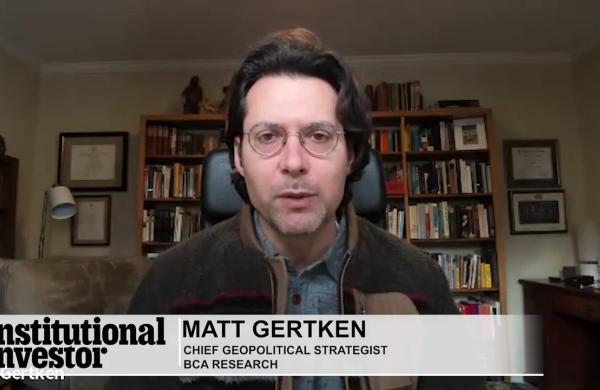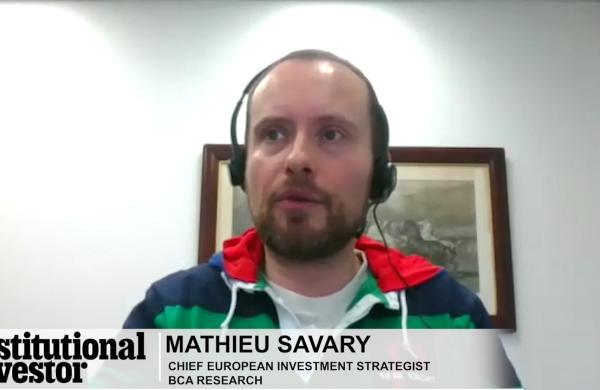A CFO’s duties are challenging in the best of times. Throw in a boardroom clash and a dash of global financial uncertainty, and things get interesting. At least they did for -Michel Demaré, the chief financial officer of Swiss engineering giant ABB, who in February found himself -named interim CEO as well as CFO, after Fred Kindle abruptly resigned because of unexplained but irreconcilable differences with chairman Hubertus von Grünberg.
The sudden loss of the highly regarded Kindle unnerved investors and knocked ABB’s share price nearly 10 percent -lower initially. But amid the turmoil, Demaré kept his calm and -didn’t lose sight of the basics: “A good chief financial officer asks all the tough questions, challenging everyone else’s assumptions,” he -declares.
Assured that the business was still on track despite tight -credit markets, rising inflation and spreading signs of economic weakness, Demaré maintained ABB’s forecast for double--digit sales and profit growth this year. Investors have responded by boosting the com-pany’s share price by 40 percent from its mid-March low. The presence of Demaré at the corporate helm “is a gauge that they -won’t do anything foolish like destroy -value through a -major acquisition,” says one London--based port-folio man-ager who owns ABB shares.
Demaré’s confident stewardship is one reason he ranks as the best CFO in Europe’s Capital Goods sector, according to Institutional Investor’s exclusive survey of portfolio managers and analysts. (The top--rated CFOs in 30 sectors appear in the table on page 52; a complete ranking and methodology can be found on our Web site, -institutionalinvestor.com.)
Other top-rated CFOs are also stepping up their vigilance in today’s uncertain economic environment. Gerard van Kesteren, CFO of Swiss shipping and logistics group Kühne + Nagel International, has put a freeze on hiring and capital expenditure. He wants to make sure the group has enough cash in the event of a -global slowdown to continue to acquire trucking companies. “It is -very important that we ensure our independence from banks, particularly in a period of very tight lending standards,” he says.
The credit crunch helped force Spain’s Banco Santander to pay an average interest rate of 67 basis points -over LIBOR on €7.1 billion ($11.1 billion) of bonds in April, up from a spread of just 10 basis points a year earlier. The bank -also -faces a sharp slowdown in the domestic econ-omy because of a slumping real estate market. Still, it has -fared better than -many of its European and U.S. competitors. CFO José Antonio Álvarez credits Santander’s success to international diversification and conservative Spanish banking regulations, which deterred Spain’s banks from engaging in high-risk, off--balance-sheet financing activities. “We really -haven’t had to tighten our financial controls much thus far,” he says.
Although weaker growth and sky-high commodities prices pose a risk for -many European companies, they spell opportunity for others. Trevor Reid, CFO of the Switzerland--based mining group -Xstrata, has -worked -closely with CEO Mick Davis to -carry out an acquisition strategy that has enabled the com-pany to grow profits by almost 32 times since Reid’s appointment in 2002, to $5.5 billion in 2007. But -even energy company CFOs are showing some caution. Today’s high oil and gas prices notwithstanding, CFO Ashley Almanza is maintaining a debt-to--equity -ratio ceiling of 21 percent at U.K.--based -natural-gas producer BG Group. The com-pany plans to use debt to finance its current A$12.9 billion ($12.2 billion) offer for Australian oil and gas producer Origin Energy, but borrowing will remain well below that limit. Although Almanza believes energy prices will remain high for three to five years, he — like -many of Europe’s best CFOs — prefers to play it safe in -today’s -climate.
Ashley Almanza, BG Group
Age: 44
Named CFO: 2002
Employees: 5,098
Earnings: £1.78 billion ($3.46 billion); Compensation: £1.27 million
Power Broker
A good CFO needs to know the operations behind a com-pany’s financial -data. In that respect, Ashley Almanza’s career path at BG Group has prepared him well for his current role. The executive started 15 years -ago in the corporate finance department of the formerly government--owned gas com-pany and -worked aggres-sively on the corporate shufflings that transformed BG from a U.K. distributor and retailer of natural gas and electricity -into a more global gas exploration and production com-pany. BG, which generated 90 percent of its earnings domestically as recently as 1996, today has operations in 27 countries and gets more than half of its revenues from -overseas.
“I really started life in the operating businesses and -very -quickly developed a great enthusiasm for the operational side and strategic side of the business — in -other words, the business behind the numbers,” Almanza says. “That interest and passion for the business has really -stayed with me.”
Such enthusiasm pays dividends for investors that go well beyond the compound 24.7 percent annual growth in BG’s dividend since 2002, the year Almanza became CFO. “In -many cases you have finance directors who know the numbers and -don’t -really understand the business,” says one California--based fund manager who spoke on condition of anonymity. “But I think Ashley is a nice combination of both.”
A chartered accountant by training, with a postgraduate diploma from the University of Natal in Durban, South Africa, and an MBA from the London Business School, the South Africa–born Almanza enjoys a wide brief, being responsible for M&A activity and investor relations as well as finance. He is currently overseeing BG’s A$12.9 billion ($12.2 billion) bid for Australia’s largest oil and natural--gas producer, Origin Energy. Almanza’s close working relationship with BG CEO Frank Chapman is a big plus in investors’ eyes.
“What we like to see is a CFO who you can imagine in the boardroom context being a good foil for the CEO, someone -who’s actu-ally providing some -value from a strategic point of view,” says Paul McGinnis, a fund manager at Manchester, U.K.–based Co-operative Investments. “You get the impression that Almanza is -also -very much involved -with the formation and delivery of the overall com-pany -strategy.”
Almanza believes BG will thrive as environmental concerns boost demand for natural gas because of its lower carbon content. — Henry Teitelbaum
José Antonio Álvarez, Banco Santander
Age: 48
Named CFO: 2004
Employees: 131,306
Earnings: E9.06 billion ($14.23 billion)
Compensation: Undisclosed
Crouching Tiger
José Antonio Álvarez often feels like -he’s riding a tiger. In less than 20 years, Banco Santander, led by chairman Emilio Botín, has transformed itself from a regional Spanish bank -into the world’s seventh biggest by market capitalization. And some of Santander’s most explosive growth has taken place since Álvarez became CFO — including last year’s blockbuster €71 billion ($100 billion) purchase of ABN -Amro Holding by Royal Bank of Scotland Group, Fortis and -Santander.
The takeover highlighted Botín’s deal--making prowess and the behind-the--scenes thoroughness of Álvarez and his team. Santander acquired Brazil’s -Banco -Real and -Italy’s -Banca Anton-veneta as part of the acquisition, and -within 30 days of the deal’s signing, the bank agreed to sell Anton-veneta to -Italy’s -Banca -Monte -dei -Paschi di -Siena for €9 billion — or €2.4 billion more than the -value Santander had assigned to the bank. How did the Spaniards move so quickly? During the six-month battle for ABN -Amro, -Botín and Santander CEO Alfredo Sáenz asked Álvarez to explore possible financial consequences of keeping Anton-veneta or selling it. “We always felt that to be competitive in Italian banking we needed to have a significant market share — at least 10 percent,” says Álvarez. His number crunchers estimated Santander would need at least three years to boost Anton-veneta’s share, then at about 2.5 percent, up near the 10 percent mark. -“Other players in the Italian market were willing to pay the price for Anton-veneta that we were expecting it to reach in three or four years.”
This year, Álvarez is spending a big chunk of his time ensuring Santander’s compliance with the new Basel II capital accord. During the past three years, the CFO has turned -over more than a decade’s worth of loan -data to Spain’s central bank, which approved Santander’s capital assessment model in May. According to Álvarez, the bank expects to -lower its capital requirements because Basel II offers more favorable treatment of -many retail and commercial banking risks.
Born in the northwestern province of León, Álvarez studied business administration and economics at Spain’s Universidad de Santiago de Compostela, then got an MBA from the University of Chicago Graduate School of Business in 1984. He began his career as an analyst at state-owned industrial holding company Instituto Nacional de Industria and -over the next -dozen years hopscotched upward through several banks to become head of the finance division at Santander’s big Spanish rival, -Banco Bilbao Vizcaya Argentaria, from 1999 to 2002. He was hired away by Santander in the same post and promoted to CFO two years -later. — Jonathan Kandell
Michel Demaré, ABB
Age: 51
Named CFO: 2005
Employees: 112,000
Earnings: $3.8 billion
Compensation: Sf5.27 million ($4.68 million)
View From the Top
Until February, Michel Demaré was part of a well--respected duo at Swiss engineering giant ABB. He and CEO Fred Kindle had completed a restructuring initiated by their predecessors, CEO Jürgen Dormann and CFO Peter Voser, selling off businesses in everything from financial services to oil and gas engineering, paying down debt and refocusing the company on its core power and automation enterprises. The six-year effort helped revive ABB after its near--collapse earlier this decade because of acquisition--related debts and lawsuits over asbestos. After Dormann and -Voser stabilized finances, “we settled the lawsuits and rebuilt the foundations for solid growth,” says -Demaré.
When Kindle resigned in February, after a still unexplained clash with ABB chairman Hubertus von Grünberg, Demaré was abruptly named interim CEO, as well as remaining CFO. So far he has carried the dual burden with aplomb. “He gets high marks for calming both the staff and the markets after Kindle’s departure,” says one -voter. -“He’s done that by making it clear that ABB is in -very strong hands.” Demaré has emphasized his determination to continue targeting annual double--digit profit growth for the next several years. Initial results -haven’t disappointed. In April, ABB reported an 87 percent increase in first--quarter profit from the same period a year earlier, to $1 billion, on a more modest 29 percent rise in sales, to $8 -billion.
“As CFO, I’ve really focused on growing revenues while keeping expenses almost flat,” says Demaré. “Now our message is changing a little. With $8 billion in cash on our books, we will continue looking for smaller, bolt-on acquisitions, but we are -also going to start investing a lot more in research and development, particularly, for instance, in renewable -energy.”
The son of an Alken brewery executive from Brussels, Demaré earned an MBA from Belgium’s Katholieke Universiteit Leuven in 1980 and spent four years handling foreign exchange at the former Continental Illinois Bank and Trust Co.’s Belgian division before finding his calling, in 1984, as a corporate finance executive, first at Dow Chemical Co. in Brussels and then at Deerfield, -Illinois–based Baxter International, where he became CFO of the pharmaceuticals group’s European division in 2002. Demaré, who says ABB will appoint a permanent CEO sometime in the fall, acknowledges -he’s a more-than--willing candidate. “Having been thrown -into the job, I know how to handle it — and -even more importantly, I enjoy it.” — D.L.
Trevor Reid, Xstrata
Age: 47
Named CFO: 2002
Employees: 37,698
Earnings: $5.54 billion
Compensation: £2.2 million ($4.4 million)
Vision Critical
There’s nothing like getting in on the ground floor of a small, ambitious mining com-pany just as a commodities boom is gathering steam to give a young finance director a chance to show his stuff. Since joining -Xstrata as CFO in 2002, Trevor Reid has played a leading role in helping transform the company from a small Swiss--based business with a single South African ferrochrome mine -into a -global powerhouse with interests in coal, copper, nickel and -platinum.
-Xstrata has made 15 acquisitions over the past six and a half years and has seen its market capitalization expand more than a hundredfold, to $77.4 billion from $500 million. A major reason for that success has been Reid’s ability to sell investors on the company’s growth strategy and his belief that demand for commodities would push up prices, which is obvious today but -wasn’t a sure thing earlier this decade. “The mining industry had been -guilty for -many years of delivering -very poor returns to shareholders, and as a result, sources of capital for mining had dried up,” he says. “It was -very evident from -early on that the skills that were required to turn -Xstrata -into the com-pany that we wanted it to become were far more than just doing the -numbers.”
Reid and CEO Mick Davis have had to adjust their strategy more recently as commodities prices have -soared. -Xstrata dropped its $5.6 billion bid for Canada’s LionOre Mining International last year in the face of a -higher offer from Rus--sia’s Norilsk Nickel, but picked up a -tidy $275 million break fee for its efforts. The com-pany has since pursued smaller, lower--profile deals instead, spending a total of $6 billion in 2007 to acquire five Australian coal properties, an Australian nickel mining com-pany and a South African platinum mining outfit. “They didn’t get the kind of headline play that some of our flagship transactions received, but they were all substantial transactions in their own right,” says Reid, who before joining Xstrata was global head of resource banking at Standard Bank in London.
Although -Xstrata has grown exponen-tially, Reid maintains tight financial controls on the far-flung operations with minimal overhead. The company has -only about 40 people in its central London office and Zug, Switzerland, headquarters combined. “The flip side of keeping things small is we have to have multi-talented people who can pick up the ball,” says Reid, who graduated from South Africa’s University of Capetown with a bachelor of science degree in 1981 and became a chartered accountant.
Investors appreciate Reid’s hands-on knowledge of all aspects of -Xstrata’s business. “He has the vision to take the com-pany forward,” says Robert van den Barselaar, a fund manager at Robeco, an asset management unit of cooperatively owned Dutch bank Rabobank Group in Rotterdam. Others see Reid as a perfect complement to Davis, who -worked as CFO of mining -rival BHP Billiton before leaving to become CEO at -Xstrata. “They are both numbers--savvy, but the CFO is good at putting everything in a reasonable spreadsheet,” says Philippe Brugere-Trelat, a fund manager at Franklin Mutual Advisers in Short Hills, New -Jersey. — H.T.
Gerard van Kesteren, Kühne + Nagel International
Age: 59
Named CFO: 1999
Employees: 51,075
Earnings: Sf531.2 million ($471.9 million)
Compensation: Undisclosed
Growth Driver
Growing up as the youngest of nine children whose parents owned and operated three hair salons in the Dutch city of Utrecht, Gerard van Kesteren learned the importance of tracking expenses and husbanding resources from an -early age. “Being part of a large family is a one of the best lessons in efficiency,” says van Kesteren, CFO of Schindellegi, -Switzerland–based Kühne + Nagel International, the transport and logistics company that is the world’s biggest sea-freight -shipper.
In the highly fragmented, low--margin global transport industry, van Kesteren has helped his company increase profit more than fivefold, on a threefold increase in sales, since taking -over as CFO nine years ago. Van Kesteren’s key contribution: overseeing the introduction of an automated information system that allows man-agers in the com-pany’s 5,000 operation centers, stretching across 75 countries, to see 30-day profit-and-loss accounts -within a week of each month’s close. Now, on a monthly basis, managers are accountable for the cost of capital they need to do business, and their bonuses are -based on each center’s operating profit. “Decentralization combined with standardized, -timely, detailed financial transparency is the -only way to keep costs under control and the business growing without stumbling,” says van -Kesteren.
After earning a bachelor’s degree in economics at the Dutch university Hogeschool van Arnhem en Nijmegen in 1971, van Kes-teren joined -Sara Lee Corp. as a trainee accountant at the U.S. company’s European headquarters in his hometown. He became a chartered accountant after six years, during which time he rose through the ranks to become Sara Lee’s regional finance director, first in the U.K. and then in Spain, before returning to Utrecht in 1987 as European director of corporate planning and analysis. Poached by Kühne + Nagel two years -later, he spent a decade as financial controller for Western Europe before becoming CFO.
The Swiss company has been -largely unaffected by the -credit crisis and fears of a global slowdown; profits rose 19 percent in the first quarter, compared with the year-earlier period, to Sf154 million ($152 million), on a 9 percent gain in sales, to Sf5.31 billion. Van Kesteren -isn’t taking anything for granted, though. He imposed a freeze on hiring and capital spending this year, to brace for a potential drop-off in the business in the second half. With the com-pany looking to spend some Sf500 million on acquisitions -over the next two years in European road transport, van Kesteren is keen to keep cash flow high and avoid taking on expensive bank debt. “A good CFO has to be cautious,” he says. — D.L.





